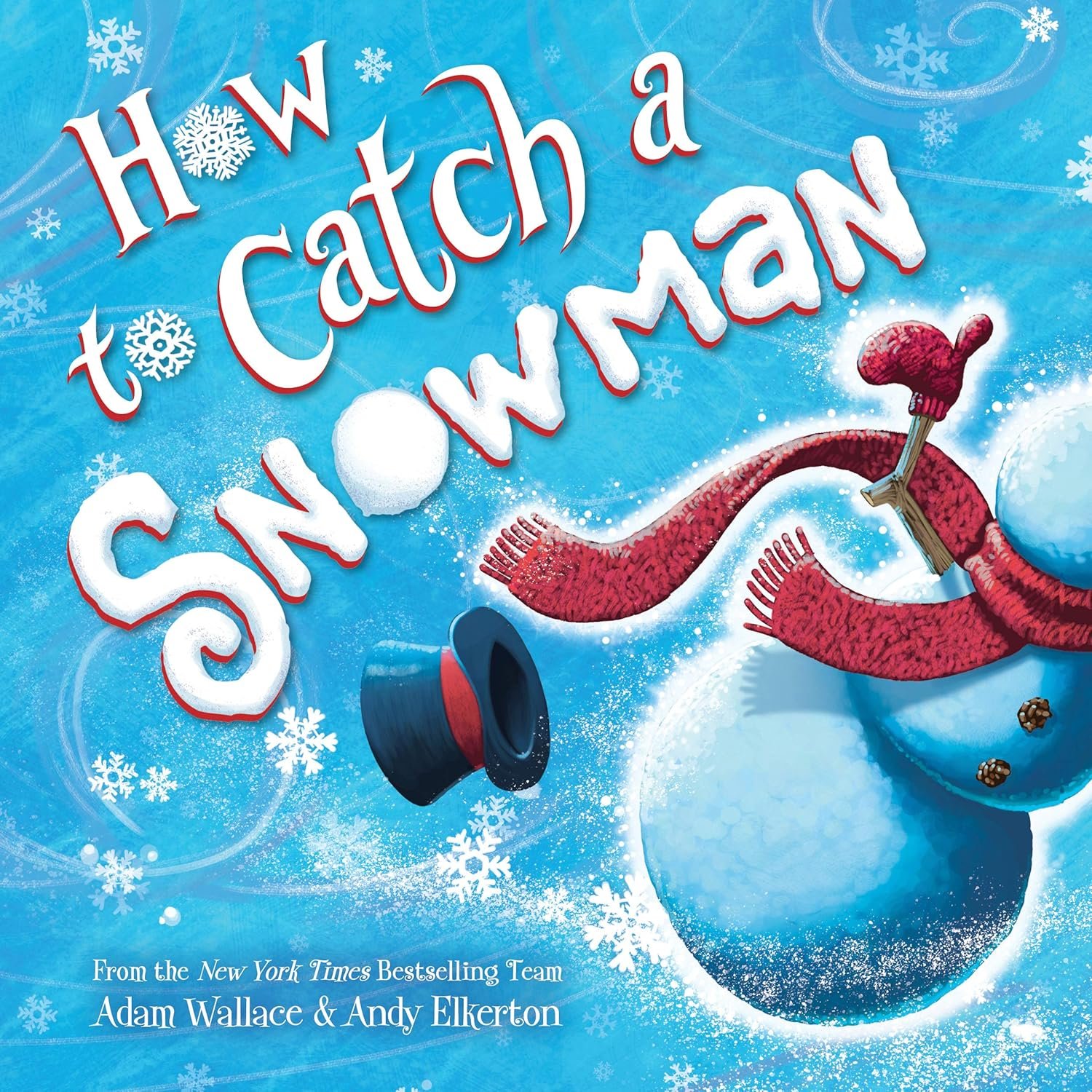Loreda woke to the smell. It reminded her with every indrawn breath that they had spent the night in the last place on earth she wanted to be.
Loreda stayed in bed as long as she could, knowing that the clarity of day would reveal images she didn’t want to see, but finally, the aroma of coffee urged her up. She eased away from Ant, who grumbled, and put a holey sweater on over her dress.
She stepped into her shoes and opened the tent flap, expecting to find her mother sitting on an overturned bucket by the campfire, drinking coffee. But neither Mom nor the truck were here. Instead, she found a glass of water and her mother’s note.
Loreda looked out toward the road, across the flat, brown field rutted by foot and tire tracks and a cluster of tents and vehicles. The field—probably fifty acres altogether—held a hundred tents and dozens of trucks that had become homes. She saw hovels that had been cobbled together of scrap metal and wooden boards. Women moved through the camp herding ragged children, while mangy dogs ran through, barking for food or attention. Folks had lived here a long time, long enough to string laundry lines and create yards full of junk. No one would want to live this way, and yet here they were. The Great Depression.
For the first time, she understood. It wasn’t just banksters running off with people’s money or a movie theater closing its doors or people standing in line for free soup.
Hard times meant poverty. No jobs. Nowhere else to go.
Jean stepped out of her tent and waved at Loreda.
Loreda walked toward her, strangely glad for an adult nearby. “Hey, Miz Dewey,” Loreda said.
“Your mama left about an hour ago, lookin’ for work.” “My mom has never had a real job.”
Jean smiled. “Spoken like a teenager. It don’t matter, though. Experience, I mean. The jobs out here are field jobs, mostly. They won’t hire us in diners and stores and such. They want them jobs for themselves.”
“It’s just wrong.”
Jean shrugged, as if to say, What difference does that make? “When times is tough and jobs is scarce, folks blame the outsider. It’s human nature. And raht now, that’s us. In California it used to be the Mexicans, and the Chinese before that, I think.”
Loreda stared out at the debris-strewn camp. “My mom never gives up,” she said. “But maybe this time she should. We could go to Hollywood. Or San Francisco.” Loreda hated how her voice broke on that. Suddenly she was thinking of her dad and Stella and her grandparents and the farm. More than anything right now, she wanted to be home, to have Grandma give her one of her no-nonsense hugs and slip her a bite of something.
“Come here, honey,” Jean said, opening her arms.
Loreda walked into the woman’s embrace, surprised by how much it helped, even from a stranger. “You’ll have to grow up, I reckon,” Jean said. “Your mom probably wants you to be young, but them days are gone.”
Loreda held back tears. She didn’t want to grow up, certainly not in a place like this.
She looked up at Jean’s kind, sad face. “So, what should I do?”
“First, go to the ditch and carry lots o’ water back. You got to boil and strain it before you drink it, mind. I’ll give you some cheesecloth. Doin’ laundry would help your mom out.”
Loreda left Jean standing outside the tent and picked up a pair of buckets and walked to the ditch. A line of women was already squatted along the banks, or on wooden planks in the brown water, washing clothes. Children played at the edges of the dirty water.
Loreda filled both buckets with the ugly water and carried them back to the tent. She passed a family of six living in a shack made of tin and wood scraps.
By the time she got back to the tent, Ant was up and sitting in the dirt. He’d obviously been crying. “Everybody left me,” he whined. “I thought
—”
“I’m sorry,” Loreda said, putting her buckets down.
Ant shot to his feet and tackled her. Loreda held him tightly. “I was scared.”
“Me, too, Antsy,” Loreda said, as comforted by the feel of him as he was by her. When he drew back, his tears were gone and his smile was back. “Wanna play catch? I got my baseball somewhere.”
“Nope. I got to boil this water and make breakfast. Then we’re gonna wash clothes.”
“Mom didn’t tell us to do that,” Ant whined. “We’ve got to help.”
Ant looked up suddenly. “She’s comin’ back, ain’t she?” “She’s coming back. She’s looking for work so we can move.” “Phew. You reckon she’ll find it?”
“I hope so.”
After a breakfast of tasteless wheat cereal, Loreda washed the dishes and put everything back into boxes, which were ready for packing up when the truck returned. That way they could leave this stinking place the second Mom got back.
BY NOON, ELSA’S FINGERS ached and her hands were burned pink from bleach and lye. She had scrubbed the kitchen, dining, and sitting room floors, and then rubbed lemon-scented oil into the wood until the planks shone. She’d pulled dozens of leather-bound books out of bookshelves and dusted behind them, unable to stop herself from smelling the leather, the paper, even reading a sentence or two.
Her life as a reader felt far away.
When her cleaning was done, she scalded two plump chickens in boiling water and plucked them, her mouth watering at the idea of roasted chicken. An hour later, she hauled wet laundry outside and fed it through the metal wringer’s presses, turning the crank until her shoulders screamed at the motion. All of this she did under the watchful eye of the woman of the
house, who never offered Elsa a lunch break, a glass of water, or an introduction.
“That’s it, then,” the woman said at just past five o’clock, as Elsa was in the kitchen again, ironing a man’s shirt. “You are done.”
Elsa slowly released her hold on the iron and sighed in relief. She was parched and starving. “I noticed the pantry could use some organizing, ma’am, I—”
“Touching our food? Of course not. Crime around here is sky-high since your kind moved in. Our schools are full of your dirty children.”
“Ma’am, certainly, as a Christian, you must—”
“How dare you question my faith? Out!” she said, flinging a pointed finger toward the door. “And don’t you come back. The Mexicans are better workers than you dirty Okies. They don’t sass and they don’t stay in town after the crops are done. We never should have deported them.”
Elsa was too tired and dispirited to argue. At least she’d found work. Today’s money was a start. She had to think of it like that. She said, “Fine, ma’am,” and waited to be paid.
“What?” the woman said, crossing her arms. “My pay.”
“Oh. Right.” The woman dug into her pocket and pulled out some coins and dropped them in Elsa’s outstretched palm.
Four dimes.
“Forty cents?” Elsa said. “For ten hours?”
“Shall I take it back? I could tell my husband how insubordinate you’ve been.”
Forty cents.
Elsa walked away, pushed through the door, let it bang shut behind her.
She got in the truck and drove down the driveway, trying not to panic.
Forty cents for a day’s work.
Now she knew why the folks in the camp walked to find work. Gas was already a luxury she couldn’t afford.
Tomorrow she’d join the people leaving the ditch-bank camp before dawn in the hopes of finding work in the fields. The pay had to be better than this.
But she’d be damned if her children would work in the fields. They would go to school and get an education.
Out on the main road, she saw a slim man walking along the roadside, his shoulders hunched in defeat, carrying a tattered knapsack. Black hair hung in dirty strands from a holey hat. One foot was bare.
Rafe.
It couldn’t be, but still …
She slowed the truck to a stop and rolled down the window. It was not her husband, of course.
“You need a ride, friend?” she asked.
The man glanced sideways. The skin on his face was tightly drawn over sharp bones. His cheeks were hollow. “Naw. Thanks, tho. Ain’t nowhere to go and I got me a rhythm.”
Elsa stared at him for a long moment, thinking, Yeah, none of us has anywhere to go, then she sighed and put her foot to the gas.
THAT DAY IN CAMP, Loreda learned the flexibility of time. Until today, it had always seemed fundamental, reliable. Even in the midst of heartbreak— losing her father and her best friend, and Ant’s illness—time had soothed with its consistency. Time heals all wounds, people told her, underscoring its essential kindness. She knew in fact that some wounds deepened over time instead of lessened; still, she’d relied on time’s constancy. The sun rose and the sun fell every day; in between there were chores and meals and markers, a schedule of daily life.
Here, hobbled by misery, time crawled forward.
There was nowhere to go and nothing to do. She couldn’t leave Ant and go hunting for doves or jackrabbits. Instead, she and her brother sat on the lumpy camp mattress and Loreda read The Wonderful Wizard of Oz out loud. But the book, with its terrible tornado in Kansas, wasn’t as fantastic as it used to be, not when you were staying in a place that looked like a disaster zone. In fact, Loreda thought it might give them both nightmares.
It was just past five-thirty P.M. when Loreda heard the familiar rumble of their truck. She pushed Ant away and jumped out of bed.
Outside, on the rutted road, a crowd of people were walking this way.
Mom pulled up next to the tent and parked. Loreda waited impatiently for her to shut off the engine and step out of the truck. When Mom finally
did exit the truck, she just stood there, hunched over, looking tired. Defeated.
“Mom?”
Mom straightened quickly and smiled, but Loreda saw that it was a lie, that smile. The defeat in Mom’s blue eyes was frightening.
“I did laundry and soaked beans,” Loreda said, suddenly wanting Mom back, the woman who was a full-charge-ahead workhorse, who never cried or gave up, who was never afraid. “We can leave after dinner.”
“I got a job today,” Mom said. “I worked all day for forty cents.” “Forty cents? That’s not even enough to—”
“I know.” “Forty cents?”
“Now we know what we’re up against, Loreda. We can’t spend money on rent or gas.”
“Wait. You promised we’d only stay one day.”
“I know,” Mom said. “I was wrong. We can’t go anywhere yet. We need to make money, not just keep spending it.”
“You want us to stay here? Here?” Loreda felt horror rise up and turn into a tremulous, terrifying anger, directed at her mother. In some small speck of her she knew it wasn’t fair, but there was nothing she could do to draw it back. “No. No.”
“I’m sorry. I don’t know what else to do.” “You lied. Just like he did. Everyone lies—”
Mom pulled Loreda into her arms. She fought to break free, but her mother held fast, tightened her hold until Loreda gave up and slumped forward and wept.
“I talked to Jean. Cotton-picking season is supposed to be the time we can save money and pay our bills. If we are really careful and save every penny, maybe we will be able to leave in December.”
Loreda drew back, feeling shaky and uncertain. Angry. “Can we go back to Texas? We have enough for gas.”
“The doctor said Ant’s lungs wouldn’t heal for at least a year. You remember how sick he was.”
“But he refused to wear his gas mask in the beginning. Maybe now—” “No, Loreda. That’s not an option.” She pushed the hair out of Loreda’s
face with a gentle touch. “I need your help with Ant. He won’t understand.”
“I don’t understand. This is America. How can this be happening to us?” “Hard times,” Elsa said.
“That’s a darn lie.”
“Language, Loreda,” Mom said tiredly. Then she walked over to the truck and climbed up into the bed and began unstrapping the narrow, black wood-burning stove that Rose and Tony had used in the dugout years ago, before they’d built the farmhouse.
Loreda hated the idea of unpacking that stove with every fiber of her being. A stove meant home; it meant you were staying someplace, settling in. They’d imagined this stove heating a new house. With a sigh, she climbed up alongside her mom and untied the straps. Together, both of them grunting, they muscled the heavy stove out of the truck and onto the weedy grass in front of the tent. The buckets and a metal washbasin were beside it. “Great,” Loreda said. Now they looked like all the rest of the poor,
desperate people living in tents in this ugly field. “Yeah,” Mom said.
There was nothing else to say.
They went into the tent, where Ant was lying on the dirt floor beside the mattress, playing with his toy soldiers. “Mom! You came back.”
Loreda saw the pain flash across her mother’s face. “I will always come back. You two are my whole life. Okay? Don’t ever be afraid of that.”
THAT NIGHT, ELSA LAY awake long after the kids had said their prayers and fallen asleep on either side of her. Moonlight illuminated the canvas walls, setting the small interior aglow. Careful not to disturb the kids, she found a scrap of paper and a pencil and sat up to write.
Dear Tony and Rose, Greetings from California!
After a grueling drive that was more fun than any of us expected, we came to the San Joaquin Valley. It’s a beautiful place. Mountains. Crops that are green and growing, rich brown earth.
Our tent is near a river. We’ve made friends with folks from the South. The kids are excited to start school tomorrow. How are things
with you?
You can write to us care of General Delivery at the Post Office in Welty, California.
Pray for us as we pray for you.
Love, Elsa, Loreda, and Ant
THE NEXT MORNING, ELSA woke before the sun rose and began carrying water back to the campsite, putting it on to boil on the stove.
In the darkness, smoke drifted from tent to tent; she heard the clang of water buckets being filled, of grease popping in cast-iron pans. People began to walk toward the road. Men, women, children.
At seven o’clock, she wakened the children, got them dressed, and herded them out of the tent, where she fed them some hot mush (not enough, but she knew now she had to save every single penny), and used the newly boiled, strained, and cooled water to wash their hair and faces. She was so grateful the kids had done laundry yesterday.
Ant tried to wiggle free. “Why do I gotta be cleaner?” “Because today is the first day of school,” Elsa said. “Yippee!” Ant said, jumping up and down.
Loreda took a step back. “Tell me you’re kidding.”
“Education is everything, Loreda. You know that. You will be the first Martinelli to go to college.”
“But—”
“No buts. Hard times don’t last. Education does and y’all are behind the grind these days. Hurry up. We have a walk ahead of us.”
“How am I supposed to go to school with no shoes?” Ant said. “Didja think of that?”
Elsa stared down at her son in horror. How in God’s name had she forgotten that salient fact? “I … we…”
“Elsa?”
She turned, saw Jean walking toward her, carrying a scuffed, holey pair of boy’s shoes. “I saw you carrying water,” Jean said. “I figured you was washing the kids for school.”
“I forgot my son had no shoes. How could I—”
Jean touched her shoulder, gave her a reassuring squeeze. “We do the best we can, Elsa. Here, these shoes belonged to Buster. He’s outgrown ’em. You give ’em back when Ant outgrows them.”
Elsa couldn’t find words to express her gratitude. This generosity was nothing short of stunning, coming as it did from one with so little.
“It’s how we get by,” Jean said, patting Elsa’s arm. “Th-thank you.”
“The school’s a mile south.” Jean cocked her head to the south. “They ain’t real welcomin’ there.”
“I’d say that’s true of the whole state so far,” Elsa said. “Yep.”
“After you get ’em set in school, you’d best go register with the state. The relief office is north of here about two miles in Welty. You want them to know you’re here.”
Relief.
Elsa’s stomach tightened at the thought. She nodded. “So, south to school and then go back north two miles from here to town. Got it.”
Elsa handed Ant the shoes and loved how happy they made him. “All right, Martinellis,” she said as he laced them up. “Let’s go.”
They walked out to the main road and turned south, joining a group of children walking in the same direction. There were probably nine children aged six to ten. Loreda was the oldest child in the group. Elsa was the only adult.
A blunt-nosed school bus rumbled past, spitting rocks and blowing dust.
It didn’t stop for the migrant children.
They passed a county hospital with a gray ambulance parked out front, and finally came to the school. Green grass and trees gave it an inviting look. A crowd of laughing, talking kids swarmed the yard. They were clean and well dressed. The migrant children moved woodenly, silently, among them.
“Look at them, Mom,” Loreda said. “New clothes.”
Elsa tipped Loreda’s chin up with one finger, saw the tears gathering in her daughter’s eyes. “I know what you’re feeling, but don’t you dare cry,” Elsa said. “Not about this, not with all you’ve been through to get here. You’re a Martinelli, and you’re as good as anyone in California.”
Tucking her children’s hands in hers, she took them across the grass, beneath the billowing American flag.
Inside, the hallways were full of children. Elsa noticed the looks thrown their way and saw how the better-dressed children avoided them. A bulletin board held flyers for field trips and school functions and advertised the upcoming PTA meeting.
Elsa headed into the first office she saw. She stood with her children in front of a long counter. A placard on it read: BARBARA MOUSER, ADMINISTRATION.
Elsa cleared her throat. “Excuse me?”
The woman seated at a desk behind the counter looked up from her paperwork.
“I am here to enroll my children in school.”
The woman sighed heavily and got to her feet. She was dressed in a pretty blue dress with a fabric belt, silk stockings, and sensible brown shoes. Elsa noticed that her nails were well cared for and her cheeks were nice and plump.
The woman walked up to the counter, on the other side of which Elsa and the children stood. “Did you bring report cards? Transfer papers? School records?”
“We left in a bit of a rush. Times back home were—” “Hard for you Okies. Yes.”
“We’re from Texas, ma’am,” Elsa said. “What are their names?”
“Loreda and Anthony Martinelli. We call him—” “Address?”
Elsa didn’t know how to answer the question. “We … uh.”
The woman turned her head, yelled, “Miss Guyman, come here.
Squatters. Okies.”
“We’re from Texas,” Elsa said firmly.
The woman pushed a piece of paper at Elsa. “Can you read and write?” “Oh, for gosh sakes,” Elsa said. “Of course.”
“Names and ages.” She handed Elsa a pencil.
As Elsa wrote down the children’s names, a younger woman appeared in the office, dressed in a crisp white nurse’s uniform and cap. The nurse
marched over to the children, went to Loreda and began pawing through her hair.
“No lice,” the nurse said. “No fever … yet. How old is this girl?” the nurse asked. “Eleven?”
“Thirteen,” Elsa answered. “Can she read?”
“Of course. She’s excellent in school.”
The nurse checked Ant’s hair. “Fine,” she said at last. “Most of your kind work the fields at eleven. I’m surprised your daughter is in school.”
“Our kind are hardworking Americans who have hit hard times,” Elsa said.
“Follow me,” Mrs. Mouser said. “Not too close.”
Elsa and the children followed the woman, who stopped at the end of the hall. “Boy. In there. Go.”
Ant grabbed Elsa’s sleeve, stared up at her. “You’re okay,” Elsa said.
He shook his head, eyes pleading for a way out of this. “Go,” Elsa said.
Ant sighed heavily. His shoulders slumped in defeat. With a lackluster wave, he opened the door and disappeared into the busy classroom.
“No dawdling,” the administrator said, walking on ahead.
Elsa had to force herself to keep walking. Loreda stayed close beside her. At the last doorway, marked with a seven on it, the administrator stopped. “You,” she said to Loreda. “Go on in. See those three desks in the back corner? Sit at one of them. Don’t touch anyone or anything on your
way. And for God’s sake, don’t cough.” Loreda looked at Elsa.
“You’re as good as anyone,” Elsa said. Loreda opened the classroom door.
Elsa saw the way the clean, well-dressed children snickered at her daughter. A few of the girls even leaned away from Loreda as she passed them. A boy with red hair held his nose and a bunch of them laughed.
It took all the strength Elsa possessed to turn away from the closed door.
ELSA WALKED BACK OUT to the main road and turned north. At the turnoff to the ditch-bank camp, she kept going. At last, she came to a small, well- tended town with a big cotton-boll-shaped sign that welcomed her to Welty, California. Main Street ran for four blocks; she saw a boarded-up theater, a city hall with columns out front, and a row of shops. She walked from shop to shop, seeing no help wanted signs in any windows.
The state relief office was off Main Street, tucked in a square full of park benches and flowering trees. A long line of people waited to get in.
She stepped into line. People didn’t look at each other, nor did they speak.
Elsa understood. She could tell by the hard, shuttered looks on the men’s and women’s faces around her that they’d waited until they had no choice but to ask for help. And they were ashamed to need anything from the government. From anyone, really. Like her, they’d always worked for what they needed, not relied on the government for a handout.
Elsa’s mind went blessedly blank as she stood there.
She finally made her way to the front of the line. Beneath a temporary awning sat a young man in a brown suit with a thin black tie over a crisp white shirt. A brimmed brown hat sat at a jaunty angle on his head.
“You here for relief?” he said, looking up, tapping his pen.
“No. I’ll find a job, but I was told I needed to register. Just in case.” “Good advice. I wish more people heeded it. Name?”
“Elsinore Martinelli.”
He wrote something down on a red card. “Age?”
“Lord,” she said, laughing nervously. “Thirty-nine next month.” “Husband?”
She paused. “No.” “Children?”
“Loreda Martinelli, thirteen. Anthony Martinelli, eight.” “Address?”
“Uh.”
“Side of the road,” he said with a sigh. “Around here?” “About two miles south.”
He nodded. “Squatter’s camp on Sutter Road. When did you arrive in California?”
“Two days ago.”
The young man wrote all that down on her red card, then looked up. “We keep records of everyone who comes into the state. Your date for residency starts when you sign up, not when you actually arrive. There’s no state relief until you’re a resident, defined as being in the state for a year. Come back on April twenty-sixth.”
“A year?” Elsa frowned. “But … I hear there’s no work in the winter.
Don’t folks need help then?”
The man gave her a pitying look. “The feds’ll give you some help. Commodities. Every two weeks.” He cocked his head. “That’s their line over there.”
Elsa turned, saw the even longer line down the street. “What’s commodities?”
“Beans. Milk. Bread. Food.”
“So, all those folks are standing in line for food?” “Yes, ma’am.”
Elsa felt deeply sorry for the women she saw standing over there, skinny as rails, their heads bowed in shame. “That’s not me,” she said quietly. “I can feed my children.”
For now.





